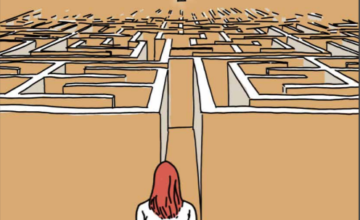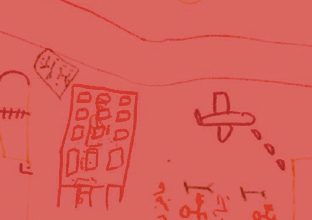
A GUIDE THROUGH THE UNTOLD DARKNESS THE REALITIES OF SYRIA’S DISAPPEARED, ARBITRARILY DETAINED, AND THEIR FAMILIES
New York, February 28, 2022 —“There can be no peace in Syria until the rights...

Although war and violence continue to plague the lives of Syrian people both in and outside the country, Dawlaty and other Syrian NGOs started preparing for the day after, or the transitional period following the cessation of hostilities. Civil society must participate in what is a historic opportunity to redefine the bases of the social contract in our country; and this process must be first and foremost a Syrian-led process. Dawlaty through its work on transitional justice seeks to build capacity, knowledge and opportunities for marginalized communities to input into and participate in future transitional justice processes. At the very core of our effort to engage and equip marginalized communities in transitional justice processes lies the underlying longer term process of using the period of conflict as a transition towards setting the foundations for a new, inclusionary society. As part of this agenda, Dawlaty is working with partners to set up an oral history archive of the Syrian conflict, focusing on marginalized groups and civil society actors. Dawlaty works to document and raise the profile of the experiences and needs of these groups, as well as to support them to voice their demands to decision makers and the public.The Stories for Empowerment & Justice for Syrian Women project proposes a collaboration between Dawlaty, Women Now and local women, as well as other national and regional actors, with the goal of linking women’s personal stories as family members of detained and disappeared persons with public and policy advocacy. The project aims to bring the issues of detainees and the disappeared to the agenda of national and international service providers, policy makers and negotiators, in order to increase information sharing about the fates of these persons, encourage their release, and provide relevant support to these women and their families in dealing with the various repercussions of the detention and disappearance.
- Women's Stories for Empowerment
Dawlaty developed a project aiming to create an Oral History Archive and engage youth in their communities in ways that are constructive and locally relevant. The project works to support and empower a group of young people to explore issues around citizenship and national identity with their communities by documenting oral history narratives of other youths who are experiencing the conflict as it unfolds.
- Youth Voices
Families for Freedom is a movement led by families of Syrian detainees and the forcibly disappeared who are bravely demanding the release of the country's sons and daughters. The movement is supported by Dawlaty, Women Now and The Syria Campaign.
- Families for Freedom

New York, February 28, 2022 —“There can be no peace in Syria until the rights...

The start of 2022 was marked by two important victories in the fight for justice...

This report is based on a study conducted by Dawlaty with the objective of exploring the Syrian youth's attitudes towards concepts of transitional justice, violations committed against them and their engagement in civil activities.